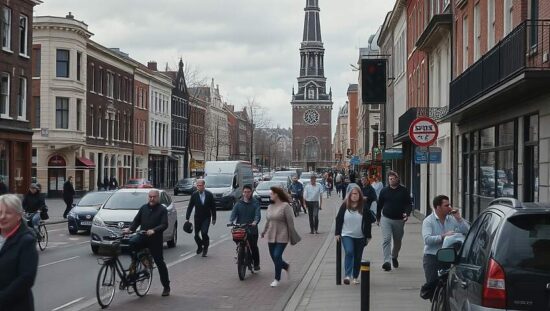The political landscape of the Netherlands has undergone a dramatic shift following snap elections triggered by the collapse of the previous coalition government. Early results, based on exit polls conducted by Ipsos I&O for NOS and RTL, indicate a surprising surge in support for the center-leaning D66, positioning them potentially as the largest party in the Tweede Kamer. With a projected 27 seats out of 150, D66 marks a significant increase from their previous performance in 2023, signaling a potential realignment of Dutch politics.
The results represent a stinging rebuke to Geert Wilders and his anti-immigration party, the Party for Freedom (PVV). Despite initially positioning himself as the frontrunner after triggering the early election, Wilders’ PVV is expected to lose substantial ground, potentially falling from 37 to just 25 seats. This dramatic decline highlights the difficulty in forming a coalition around his hardline agenda, with almost all potential partners having ruled out cooperation prior to the vote. The apparent lack of appetite for Wilders’ policies underscores a desire within the electorate for a more moderate approach.
The incumbent People’s Party for Freedom and Democracy (VVD), led by Dilan Yesilgöz, appears to have weathered the storm relatively well, maintaining a solid base of support and projecting to secure 23 seats. Their performance, while not a victory, demonstrates an enduring base and avoids a complete collapse following the government’s demise.
The combined forces of the Labour Party (PvdA) and GreenLeft (GL), spearheaded by former EU Commission Vice-President Frans Timmermans, secure a respectable position at 20 seats, presenting a potentially powerful bloc on the center-left. The Christian Democratic Appeal (CDA) projects 19 seats, while smaller parties like JA21, the Forum for Democracy and the Farmer-Citizen Movement (BBB) continue to hold niche representation.
Perhaps most notably, the exit polls suggest a near-complete disappearance of the New Social Contract (NSC) party, previously holding 19 seats. This sudden downfall underscores the fragility of political projects reliant on individual figures, particularly in the wake of Pieter Omtzigt’s withdrawal from politics. The Dutch parliamentary system, with its proportional representation and one-seat threshold, allows for a proliferation of smaller parties, inevitably creating a complex and challenging coalition-building process. The new configuration of parliament necessitates profound discussions on political alliances and policy directions, leaving the future government formation fraught with uncertainty and demanding extensive negotiation.





